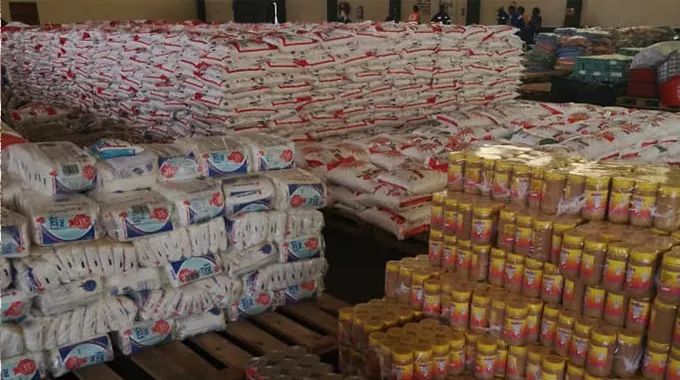AUTHORITIES have instituted measures to ensure people in Matabeleland South
Province do not face food shortages.
According to the Zimbabwe Vulnerable Assessment Committee (ZimVac) 2022 Rural
Livestock Assessment Report, 30 percent of households across the country were
projected to be food insecure by the fourth quarter of last year.
The Minister of Provincial Affairs and Devolution, Dr Evelyn Ndlovu, described this
year as a serious drought for the province.
“We are having a massive drought, which needs serious planning.
“The only crops that might survive are those under Irrigation schemes and that under
Intwasa, which was planted in October.
“Some parts of the province received their first rains on December 25, 2023 and
since then there is nothing,” she said.
The acting Provincial Director Agriculture Rural Development Services,
Mkhunjulelwa Ndlovu, confirmed that the crop situation as bad.
”We are not food secure. But if we get rains I trust our farming communities can
make it. They have great potential and are highly committed.
“Farmers have not harvested. At household level some have, but others are buying
from shops and from other farmers,” explained Ndlovu.
The Government last month assured the nation that the country had enough grain to
last three months and that what was critical was ensuring that grain is moved to
areas where populations are likely to be vulnerable as a result of food insecurity.
However, farmers embraced the climate proofing programme by using both basins
and ripping. Ripping was mostly done by farmers with draught power and traditional
crops, which they highlighted does well when dry-planted.
In October 2023 farmers started dry planting of sorghum, pearl millet, maize and
ground nuts in their intwasa/ pfumvudza plots. The farmers sourced their seed and
used well decomposed and previous season basal fertilisers.
Ndlovu said the province started to receive rains on October 3, 2023 at Insiza North
and Beitbridge Central Ward 5, part of Ward 3, which then triggered the plantings,
especially swamp areas of Insiza North and Ward 5 Beitbridge received better rains
and influenced plantings of traditional grains and groundnuts.
Umzingwane Ward 6 Councillor, Amanda Khumalo, said the crop situation was dire.
“Our District usually receives enough rains but this time around the situation is dire.
Crops are wilting due to heatwave and none availability of rains,” she said.
A farmer from Insiza District, Sibongile Khumalo, said this is a drought year.
“There is no doubt that this is a drought year. At first we thought we missed the
climate change teachings by Agritex and weather reports, only to discover there are
no rains at all.
“Some farmers did not even plant anything in their fields while those who did,
concentrated on small plots,” said Khumalo.



